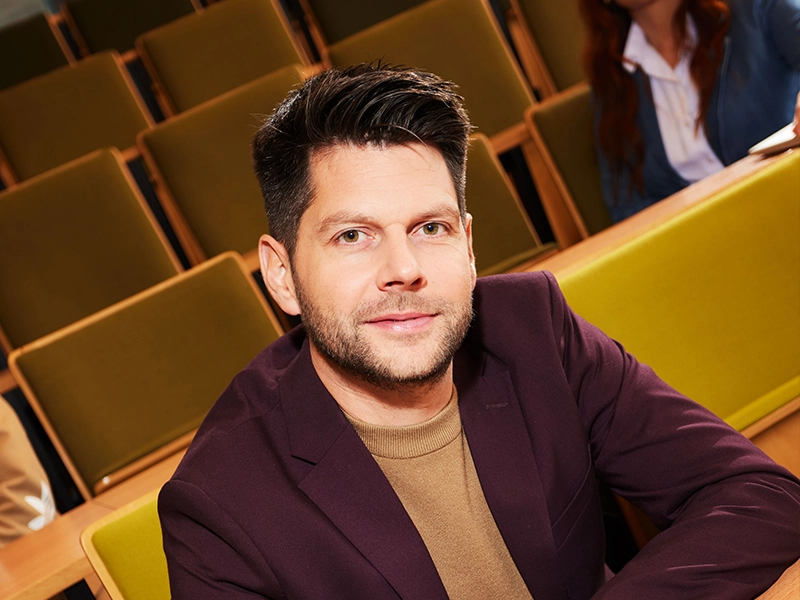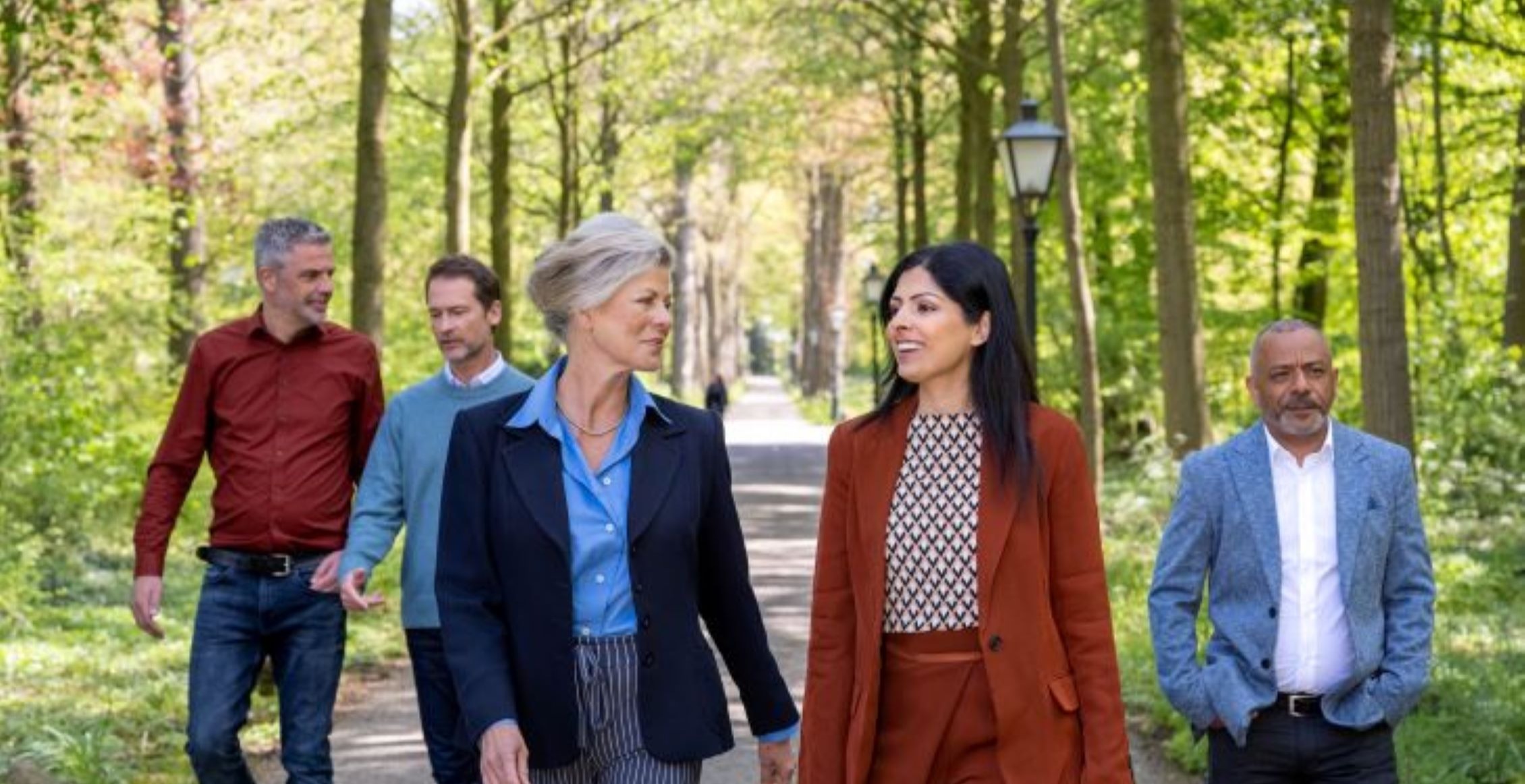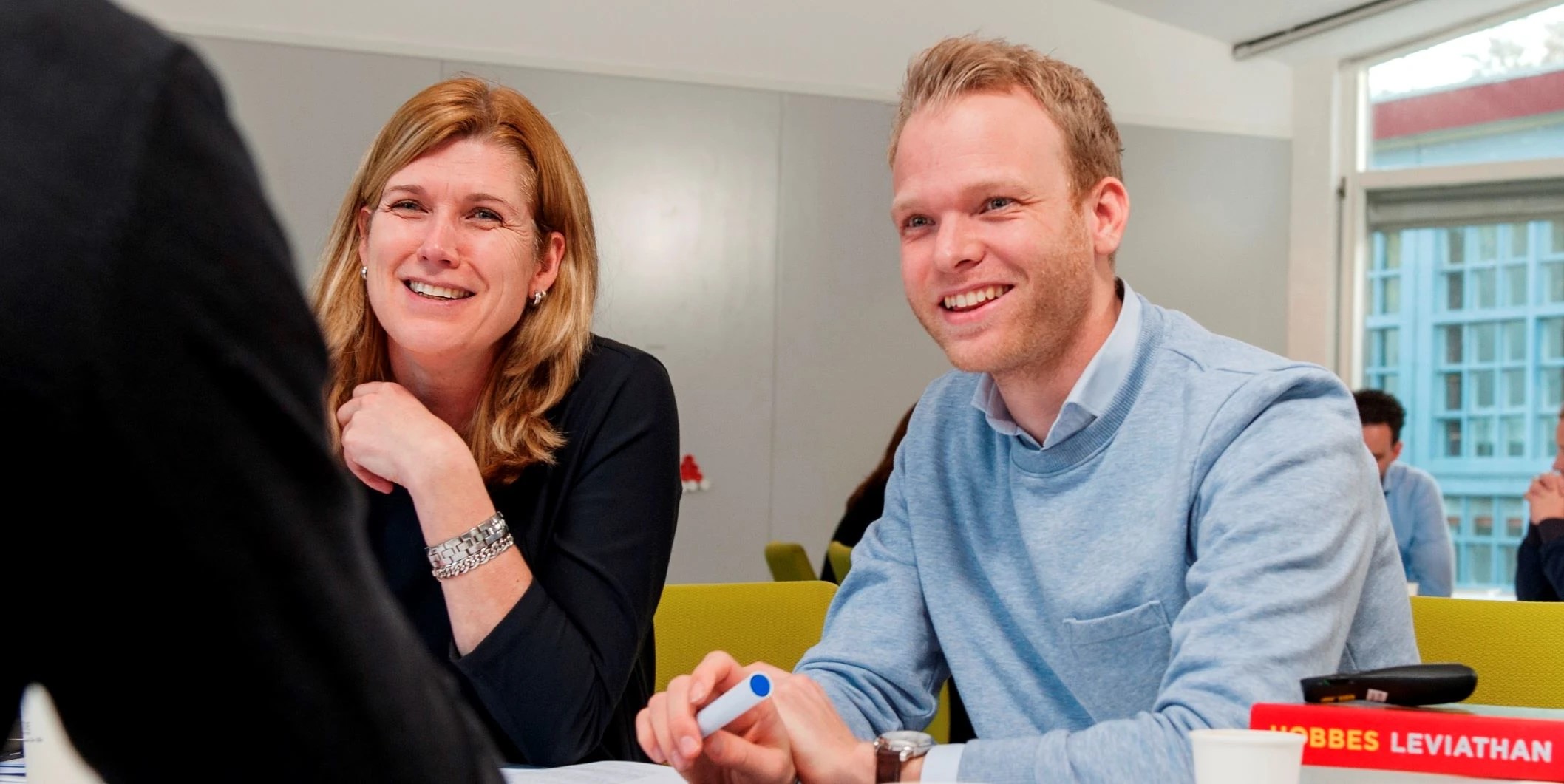During the Dies Natalis on November 20, 2018, Peter Bakker – President and CEO of the World Business Council for Sustainable Development (WBCSD) – urged the business community to take on a leading role and secure a sustainable future for all. He believes we are entering a period of unprecedented transformation. On January 18, 2019, Nyenrode hosted a conference that fit in perfectly with this topic: 'Corporate responsibility in relation to climate change'. International firms, investment managers, insurers, human rights organizations and climate groups came together to address the key question: how can my business take responsibility for future generations?
Rules and agreements
These are turbulent times for climate change issues, according to Tineke Lambooy, professor of Corporate Law at Nyenrode. 'Several new agreements have recently been made to combat global warming, such as the worldwide Paris Agreement in 2015. These agreements were confirmed at the 2018 United Nations Climate Change Conference in Katowice'. Lambooy also briefly discussed the content of the Dutch Climate Act and the Climate Deal, both of which were approved in December 2018. She additionally highlighted the EU Action Plan that focuses on financial institutions and aims to stimulate sustainable growth through them, with special consideration for future generations.
Climate change is connected to human rights as well. Are these rights compromised when businesses do not take action? And is corporate responsibility increasing in this area? These questions were further examined and answered during the afternoon sessions.
Last week, the front-page headline of NRC Handelsblad read: 'Only together can we save the climate'. This shows that climate change is topical and requires action now.
Lambooy argues that 'companies must realize that those in management bear primary responsibility for developing a long-term strategy. In practice, however, the impact of climate change is still largely absent from management’s accountability. Another problem is that there is not yet a uniform way to measure CO2 emissions.'
What do companies report?
Remko Renes, assistant professor Corporate Governance at Nyenrode, studied how companies value their assets with due regard for the energy transition and the recommendations of the Task Force on Climate-related Financial Disclosures (TCFD). Together with Lambooy, Wim Bartels (KPMG and TCFD) and Rebecca Scholten (CR Lead at EY), Renes conducted a literature study and carried out case studies on the application of the International Financial Reporting Standards (IRFS) in this context. He examined the energy industry, since this sector should be particularly aware of the changing market. Renes was shocked by his findings.
Little regard for the future
'Companies that are drilling for oil only look at how many barrels they have produced. Their financial reports also lack information on the consequences that arise when less oil is available, or when political or social pressure causes drilling operations to be scaled back or demand for oil to decline. These considerations are not reflected in the valuation of their production assets either. Among businesses that generate renewable energy, it is striking to note that they actually undervalue themselves in their financial reports. These firms focus only on their current revenue and expenses. In doing so, they are not looking ahead: how much wind energy or solar power could they produce in the future? That is a missed opportunity.'
Speaker Wim Bartels of KPMG says: 'The difficulty when it comes to climate change is that businesses are unfamiliar with the topic. The less knowledge they have about climate change, the harder it is for them to make financial predictions about the future.'
Rules still unclear
Renes recommends that businesses include information about the effects of climate change in their financial reporting. This provides valuable information about future revenue and expenses, which is extremely important for investors. For instance, what is the threat of not being able to use expected gas or oil reserves? Is it possible to identify how much wind energy or solar power can be produced in the future, just like fossil energy companies are taking stock of their resources now? Renes explains: 'Financial information must be robust and complete. This information is also part of that. Unfortunately, the current rules on how to properly record such data are still unclear.' Companies must take action in this regard.
View the speakers’ presentations
Theme I - Business and Climate Change: Law, Governance and Accounting
Prof. Dr. Mr. Tineke Lambooy (Professor of Corporate Law at Nyenrode Business University): Climate Change in Corporate Governance and Corporate Law
Lars N. Jensen MSc (econ): Energy Supply Side Divestment and Managed Decline
Prof. Dr. Wim Bartels (partner for Corporate Reporting at KPMG and member of the TCFD): The Task Force on Climate-related Financial Disclosures - recent developments
Rebecca Scholten MA (Corporate Responsibility Lead at EY): How do companies deal with the Task Force on Climate-related Financial Disclosures
Drs. Remko Renes (Nyenrode Business University): Comments from accounting perspective
Theme II - Business Strategies on Climate Change
Follow This for Climate Responsibilities of Business
Theme III - Climate Justice and Human Rights-Based Cases Around the World
Kristin Casper LL.M (Litigation Counsel for the Global Climate Justice and Liability campaign, Greenpeace International): Climate litigation on the rise, an overview of climate litigation cases worldwide
Jan van de Venis LL.M (solicitor and owner of the law firm JustLaw): Human Rights and Climate Change
Caterina Freytag (Policy Advisor Climate Litigation - Germanwatch): Climate Responsibilities of Business. The Case of Huaraz
Theme IV - Climate litigation based on tort law
Laura Burgers LL.M (University of Amsterdam (UvA) PhD candidate): "Justitia, the Peoples' Power and Mother Earth”; developments and reflections on tort and human rights based climate change litigation
Tags
Related programs
-
Modular Executive MBA in Business & Sustainable Transitions
Start date: spring & autumnLanguage:- Dutch
Location:- Breukelen
The Modular Executive MBA in Business & Sustainable Transitions focuses on transitions underway around sustainability.
View program
-
Executive Program Energy Transition in Business and Leadership
Start date: November 23, 2026Language:- English
Location:- Amsterdam
- Other...
This executive programme focuses on the development of new business models at a time of massive and disruptive change in the energy market. It has three main parts.
View program
-
Executive Program Hydrogen
Start date: new dates will followLanguage:- English
Location:- Breukelen
In the dynamic world of the energy transition, the Executive Hydrogen Programme emerges as a platform for leaders in the hydrogen sector.
View program
-
Executive Programme Energy Transition and Innovation
Start date: March 23, 2026Language:- English
Location:- Breukelen
- Other...
Get ready for the future of energy – with Nyenrode Business University, RWTH Aachen University of Technology and the International Energy Agency
View program
-
Sustainability and Systemic Change
Start date: March 17, 2026Language:- English
Location:- Breukelen
Develop knowledge and skills to create opportunities for sustainable value creation from a leadership rol.
View program
